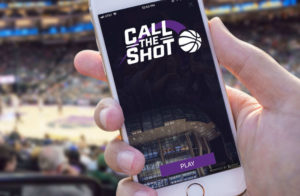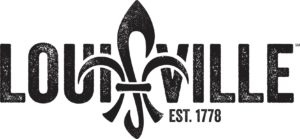Older generations of sports fans have been mostly content with simply attending an event and enjoying the action. But anyone attuned to the next generation of sports fans can predict the future of the live-event experience: It will be interactive, likely in ways that seem unimaginable today.
Alex Hertel, co-founder and CEO of Xperiel, is not only imagining that future, he’s helping to build it. Imagine fans earning benefits at the stadium by using their mobile devices to predict plays during the game. Imagine the scoreboard shooting virtual T-shirts from a virtual T-shirt cannon—and Amazon delivering a real shirt to your home. Imagine your cup of soda or can of beer earning you credits for interactive mobile games. Simply put, imagine the venue being part of the game. “We take a stadium and turn it into a giant video game console,” Hertel said.

These types of experiences already are happening for fans of the NBA’s Sacramento Kings and the NFL’s New York Jets, which are expanding their offerings this season. For the Jets activation, entering its third season, fans can access Xperiel’s version of a game within the team’s app. For example, fans are given opportunities to predict that a touchdown will be scored on the next play. If they’re right, they earn points and can track their scores against those of other fans on the stadium’s scoreboard. And if they scan a can of Bud Light, which is part of the promotion, they can earn even more plays. “Even though this can technically isn’t connected to the Internet, for all intents and purposes we’ve taken the fan’s mobile device and turned it into a mouse cursor for the physical world,” Hertel said.
Furthermore, if fans scan cans after the game, they can keep earning plays for their next trip to the stadium. When Xperiel tracked such usage last season, executives were pleasantly surprised. “Half the actions came during the week when the team was resting,” he said, adding even more value for the brand.
In another promotion with the team last year, virtual T-shirts were shot out of the scoreboard in augmented reality. What’s more, the virtual items don’t have to be T-shirts. The objects could be, say, cans of Bud Light. Xperiel has also used the technology at events outside its team partnerships. The virtual T-shirt cannon was deployed at the 2018 Rugby World Cup Sevens at AT&T Park in San Francisco last summer. “The tech showed itself to be pretty flexible,” Hertel said.
The Sacramento Kings are also offering an in-game experience. “Call the Shot” allows fans to make predictions about what will happen on the court. By scoring well, fans can earn benefits, such as a meet-and-greet with players or having their selfies shown on large screens as they walk into the stadium.
Predictive gaming, of course, is one step away from the type of experience fans will likely have in coming years thanks to the U.S. Supreme Court ruling in May that will allow states to legalize sports wagering. While at the moment these virtual games are not played for money, Hertel concedes that the company is well positioned for the future of sports betting. In fact, in October MGM Resorts announced it would sponsor the Jets’ predictive gaming offered by Xperiel’s technology. “All of a sudden everything we’ve been doing in predictive gaming is very relevant,” Hertel said. “This is the training wheels of high-frequency prop betting.”
But whether Xperiel’s future is in legalized wagering or just a cool fan experience, Hertel said future investment in this type of technology will be vital for leagues. “They’re all fighting the same battle everyone is—they have to stay relevant to younger people,” he said of leagues and teams. “The only way to connect with the next generation of fans is to connect with the next generation of technology.”
Presented by











 Copyright © 2024 by Northstar Travel Media LLC. All Rights Reserved. 301 Route 17 N, Suite 1150, Rutherford, NJ 07070 USA | Telephone: (201) 902-2000
Copyright © 2024 by Northstar Travel Media LLC. All Rights Reserved. 301 Route 17 N, Suite 1150, Rutherford, NJ 07070 USA | Telephone: (201) 902-2000